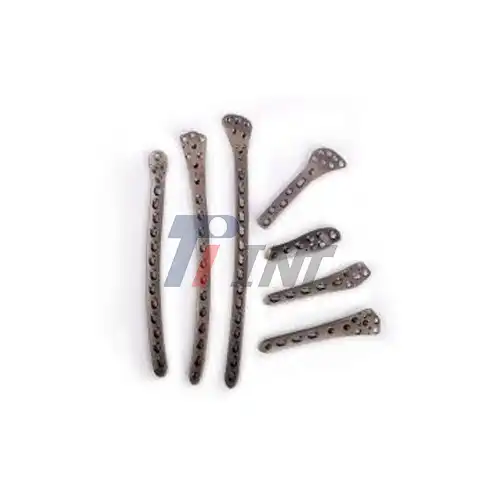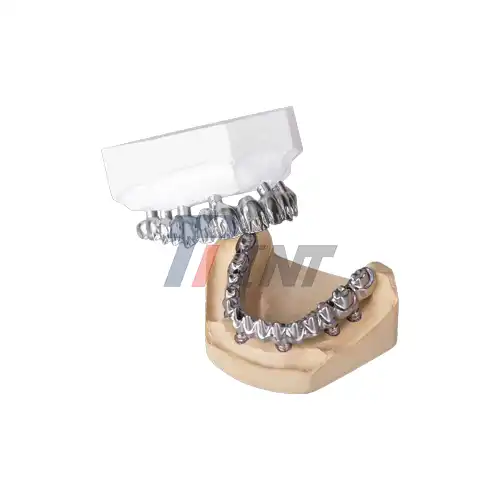The Rising Popularity of Titanium in Medical Implants
Titanium has gotten to be a go-to fabric in the restorative field, particularly for inserts and surgical gadgets. Its interesting properties make it a perfect choice for a wide extent of applications, counting cardiovascular methods. The utilization of titanium plates in heart surgery has revolutionized the way specialists approach certain cardiac mediations.
The popularity of titanium in medical implants stems from its exceptional characteristics:
- Biocompatibility: Titanium is well-tolerated by the human body, reducing the risk of rejection or adverse reactions.
- Corrosion resistance: This metal resists degradation in the body's environment, ensuring long-term stability.
- Strength-to-weight ratio: Titanium offers remarkable strength while remaining lightweight, making it perfect for delicate procedures like heart surgery.
- Osseointegration: Titanium has the unique ability to fuse with bone tissue, promoting strong and lasting connections.
These properties have made titanium an indispensable material in modern medicine, particularly in procedures requiring long-term implants or structural support.
Factors Influencing the Decision to Use Titanium Plates in Heart Surgery
When considering titanium plate heart surgery, specialists must weigh a few variables to decide if it's the most suitable course of activity. The decision-making handle is complex and multifaceted, taking into account both patient-specific and procedure-related contemplations.
Patient-specific factors include:
- Age and overall health: Younger, healthier patients may be better candidates for titanium implants due to their durability and long-term benefits.
- Medical history: Previous surgeries, allergies, or conditions may influence the choice of materials.
- Lifestyle: Active patients may benefit from the strength and lightweight nature of titanium plates.
Procedure-related factors encompass:
- Type of heart surgery: Different cardiac procedures may require specific types of support or reinforcement.
- Location of the implant: Certain areas of the heart may be better suited for titanium plates than others.
- Expected duration of implant: For long-term or permanent implants, titanium's durability makes it an excellent choice.
Doctors also consider the latest research and clinical evidence when making decisions about titanium plate usage. They stay abreast of advancements in medical technology and surgical techniques to ensure they're providing the best possible care for their patients.
The Process of Selecting and Customizing Titanium Plates
Once the decision to use a titanium plate in heart surgery has been made, the next step is selecting and customizing the appropriate plate. This process is crucial to ensure the best possible outcome for the patient.
The selection process typically involves:
- Imaging studies: Advanced imaging techniques like CT scans or MRIs help doctors assess the specific anatomy of the patient's heart.
- 3D modeling: Using sophisticated software, surgeons can create precise 3D models of the patient's heart to plan the procedure and design custom plates if necessary.
- Collaboration with manufacturers: Doctors often work closely with medical device manufacturers to ensure the titanium plates meet the exact specifications required for each unique case.
Customization of titanium plates may involve:
- Size and shape adjustments: Plates can be tailored to fit the specific contours of a patient's heart or surrounding structures.
- Surface modifications: Some plates may be treated to enhance biocompatibility or promote tissue integration.
- Incorporation of additional features: Depending on the procedure, plates may be designed with specific attachment points or integrated with other devices.
The level of customization required depends on the complexity of the surgery and the unique needs of each patient. In some cases, off-the-shelf titanium plates may be suitable, while in others, fully customized solutions are necessary.
It's worth noticing that companies specializing in restorative titanium items, such as Baoji INT Restorative Titanium Co., Ltd., play a vital part in this handle. With over 30 a long time of involvement in the investigate, improvement, and generation of titanium materials, INT gives high-quality restorative titanium items that meet the demanding benchmarks required for strategies like titanium plate heart surgery.
Their expertise in titanium materials and cutting-edge technology ensures that surgeons have access to the best possible materials for their patients. INT's products, which include titanium plates in various specifications and sizes, undergo rigorous quality control processes and are certified to international standards such as ISO9001:2015 and ISO13485:2016.
The Importance of Post-Operative Care and Monitoring
While the decision to use titanium plates and the selection process are crucial, the care and monitoring after titanium plate heart surgery are equally important. Doctors must carefully oversee the patient's recovery to ensure the implant is functioning as intended and that there are no complications.
Post-operative care typically includes:
- Regular check-ups: Patients undergo frequent examinations to monitor healing and implant integration.
- Imaging studies: Periodic scans help doctors assess the position and stability of the titanium plate.
- Medication management: Patients may require specific medications to support healing and prevent complications.
- Rehabilitation: Physical therapy or cardiac rehabilitation may be prescribed to aid recovery and improve heart function.
Long-term monitoring is essential to ensure the continued success of the titanium plate implant. This may involve:
- Annual check-ups: Regular evaluations help detect any potential issues early.
- Lifestyle adjustments: Patients may need to make certain changes to protect their implant and overall heart health.
- Ongoing education: Doctors provide patients with information about their implant and what to expect in the years following surgery.
The utilization of high-quality titanium plates, such as those delivered by INT, can contribute to superior long-term results and diminished requirements for amendment surgeries. The solidness and biocompatibility of these inserts regularly result in fewer complications and a smoother recuperation handle for patients.
Conclusion
The decision to use titanium plates in heart surgery is a complex one that requires careful consideration of numerous factors. Doctors must weigh the benefits and risks, taking into account the patient's individual needs and the specific requirements of the procedure. The selection and customization of titanium plates involve advanced technology and close collaboration between medical professionals and manufacturers.
As medical technology continues to advance, we can expect to see even more innovative uses for titanium in heart surgery and other medical applications. The ongoing research and development in this field promise to bring about new techniques and improved outcomes for patients undergoing complex cardiac procedures.
For those interested in learning more about medical titanium products and their applications in procedures like titanium plate heart surgery, Baoji INT Medical Titanium Co., Ltd. is an excellent resource. With their extensive experience and commitment to quality, they continue to play a vital role in advancing the field of medical titanium. For more information or inquiries about their products, you can contact them at export@tiint.com.










 2025-10-13 09:10:37
2025-10-13 09:10:37



_1752462199458.webp)
_1750668839491.webp)
_1755495780573.jpg)
_1750209732185.webp)

